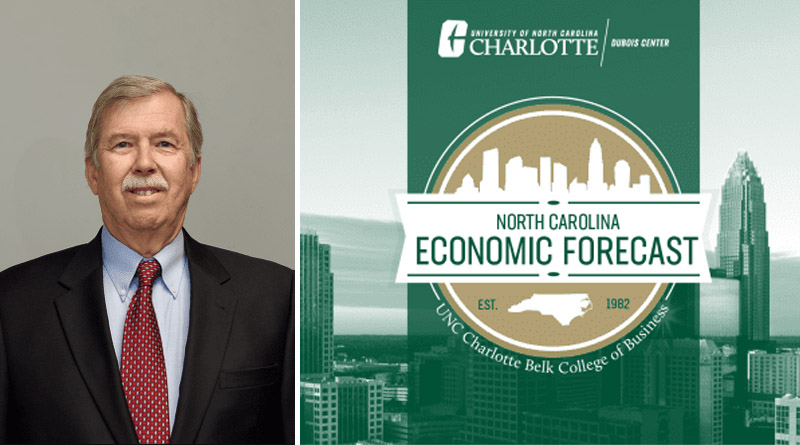A Steady Hand Amid Uncertainty: Charlotte’s John Connaughton Weighs North Carolina’s Economic Future
Even as North Carolina’s economy projects steady growth in 2025, the future remains entangled in a web of macroeconomic uncertainty. At the center of these discussions stands John Connaughton, UNC Charlotte’s veteran financial economist, whose voice has become synonymous with economic insight in the state for nearly half a century.
On May 19, Connaughton presented the North Carolina Economic Forecast 2025 Second Quarter Report at The Dubois Center in Charlotte. The report, now in its 45th year, has long been a foundational resource for policymakers, business leaders, and academics across the state.
According to Connaughton, North Carolina’s economy is expected to grow by 2.7% in real GDP in 2025, marking the fifth full year of economic expansion since the COVID-19 pandemic. Job growth is forecast to be strongest in information, educational and health services, and construction — all key sectors for a state undergoing demographic and industrial transformation.
Yet Connaughton’s long-view perspective tempers optimism with caution.
“For four years, we have focused on the Federal Reserve actions and inflation,” he said. “In just 120 days, tariffs and trade have joined these as key factors to watch.”
His nuanced predictions include a 60-40 likelihood of inflation returning in 2025, a 30% chance of recession, and a 10% possibility of an economic boom. These are not speculative guesses but the measured estimates of an economist who has guided North Carolina through multiple economic cycles.
“In addition to fiscal policy concerns, we have seen the U.S. unemployment rate rise from 3.3% in May of 2023 to 4.2% in March and April of 2025,” Connaughton noted. “As a result of the weakness in the labor market, the Fed began reducing interest rates in September of 2024. By December of 2024 the Fed Funds rate dropped by 100 basis points.”
Further rate reductions, he says, are possible by year’s end, though ballooning fiscal spending and volatile trade policy — notably tariffs — could derail progress. “The wild card in all of this is tariffs, which could slow the economy further and cause a mild bump in inflation in the short run,” Connaughton said.
A major factor weighing on the state’s short-term growth was Hurricane Helene, which struck Western North Carolina in late 2024. The storm’s effects extended beyond infrastructure damage, affecting the labor market and overall state performance.
“In addition to the slow overall state growth in the fourth quarter, we have seen a significant decline in establishment employment in October,” Connaughton said. “Total North Carolina establishment employment dropped by 7,200 jobs in October compared to September… Clearly, Western North Carolina has been severely impacted and that has spilled over to the state economic performance.”
Over decades, Connaughton has built a reputation not just as an academic but as one of the state’s most trusted economic barometers. His forecasts continue to offer not only numbers but perspective — and, increasingly, a measured warning against the unpredictable forces reshaping the American economy.

